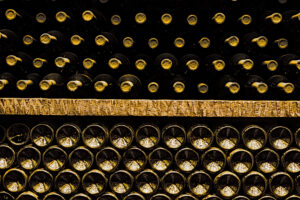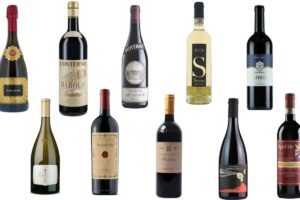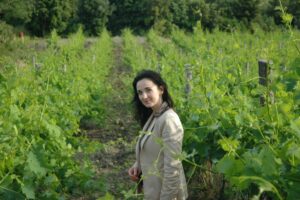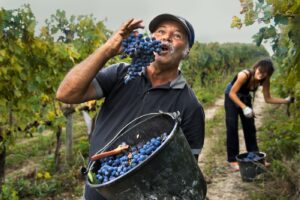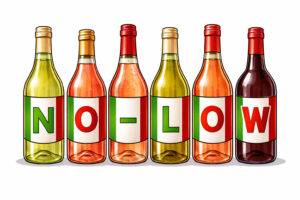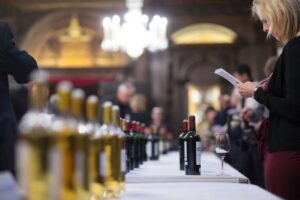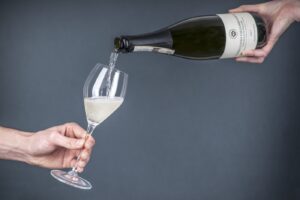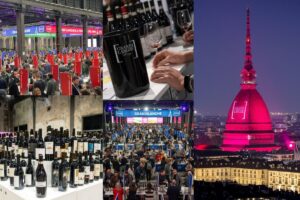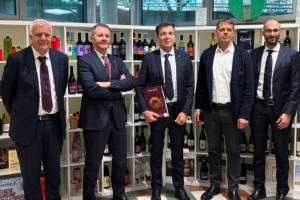Rediscovering real farmers, the ones that the industrialization of agriculture "has been making disappear", the sacred dimension of agricultural work, which is still found in traditional societies, but also agriculture seen as "a school of liberation, from a certain point of view, because it shows that exaggerating in quantity, land exploitation and so on, is a practice that unquestionably brings on very serious consequences". Silvia Pérez-Vitoria, "Pasionaria" of civilization and agrarian struggles in the world, economist, sociologist and documentary filmmaker, author of books such as, "The Return of the Farmers," tells her vision of the world of agriculture in the interview conducted by Francesca Ciancio for Winenews.
You are a documentary filmmaker and have traveled extensively. Does an agriculture model exist?
“I think it is not a question of country or nation, but rather the practice of farm culture: farmers, as I intend the term, are usually found in southern countries, so the challenge facing us today is to create or rediscover this culture in the northern countries. They still exist, but the industrialization of agriculture has made them disappear, so our goal is to find them again”.
In your opinion, is a "sacred" or "religious" dimension in the broadest sense missing in agriculture today?
"In traditional societies, in my opinion, there is still a very strong sacred dimension. In the work I have carried out with farmers, I have seen this sacred vision of the earth, of their work and their land. So, this dimension exists, absolutely. But sometimes they are a bit shy and intimidated to make this dimension public".
Industrial agriculture also means greater profits. Does going back also mean asking farmers to settle for a less prosperous economic situation?
"Logically, at least in theory, these people who preserve the natural environment, nature and offer quality food to people in general should guarantee they have a decent life. But, what actually happens is that society does not recognize their work, and the big industrial farmers, of course, are working for profit, thanks to the subsidies they receive. The worst thing, in my opinion, is that these big industrial farmers are also devastating nature and the environment on a large scale and they never have to pay for what the damage they create.”
You are also very critical of organizations dealing with food and agriculture protection, like FAO. Why, what is lacking, in your opinion?
"The fact is that FAO is an organization that has existed for over 60 years, however, there are still today 1 billion hungry people, that do not have anything to eat. So the problem is that the FAO is industry based; that is, on the idea that we need to produce more, when in fact food production is sufficient, the problem is distribution. In point of fact, two-thirds of people in the world that are going hungry are farmers, food producers”.
You believe that agriculture can become an example of life not only from an economic point of view, but also of human values. What are you referring to?
"Agriculture is a school of liberation and life, at a certain level, because it has demonstrated that exaggeration in quantity, exploitation of the land and so on, is a practice that unquestionably brings about very serious consequences. So the basic idea is that of autonomy, and it is an idea that should be further emphasized in societies, like ours, that are dependent. The lessons we need to learn from the farming culture and agriculture is precisely this idea of autonomy, the spiritual values we talked about before, but also the value of non-competitiveness and mutual aid. These are definitely the main lessons that we should learn from the farming world".
Copyright © 2000/2026
Contatti: info@winenews.it
Seguici anche su Twitter: @WineNewsIt
Seguici anche su Facebook: @winenewsit
Questo articolo è tratto dall'archivio di WineNews - Tutti i diritti riservati - Copyright © 2000/2026










